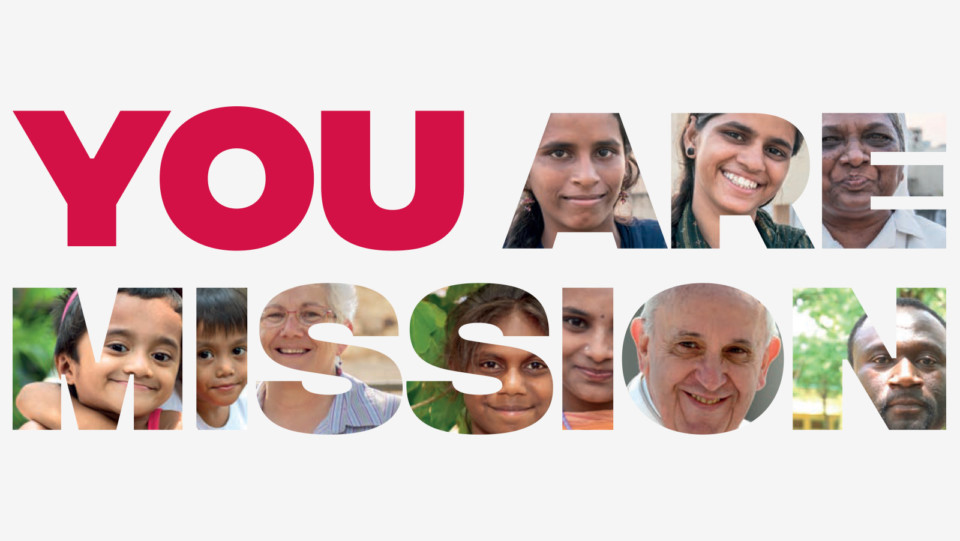
Work with Communities
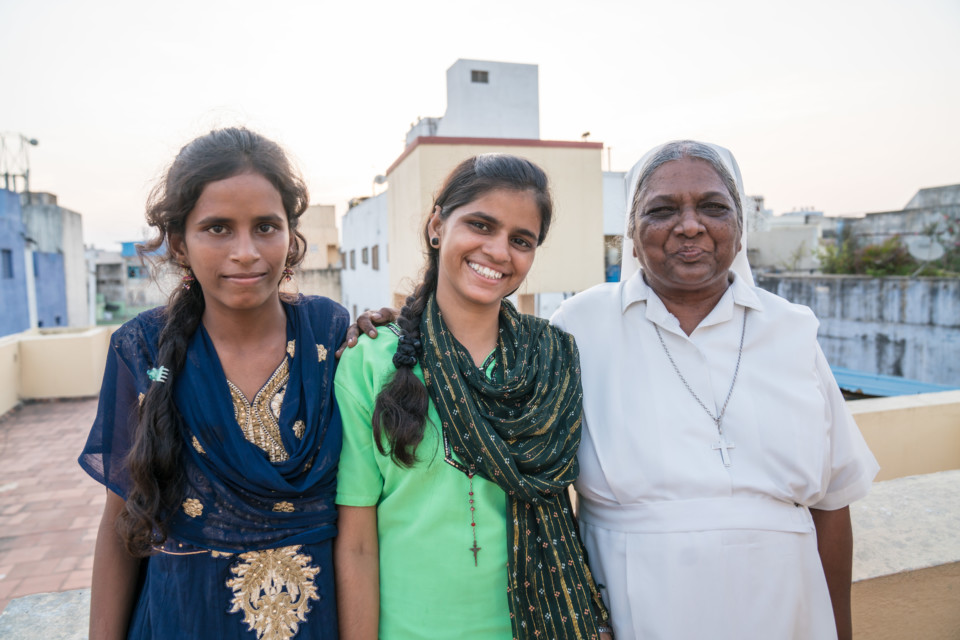

On a sweltering Wednesday in the south of India, scores of women in richly coloured sarees gather with their husbands and children in a small forest clearing, awaiting the start of Mass.
In this village she has called home for five years, Sister Clara continues her vital ministry which you have supported through Catholic Mission for over a decade, changing the lives of many women and girls throughout this part of the country.
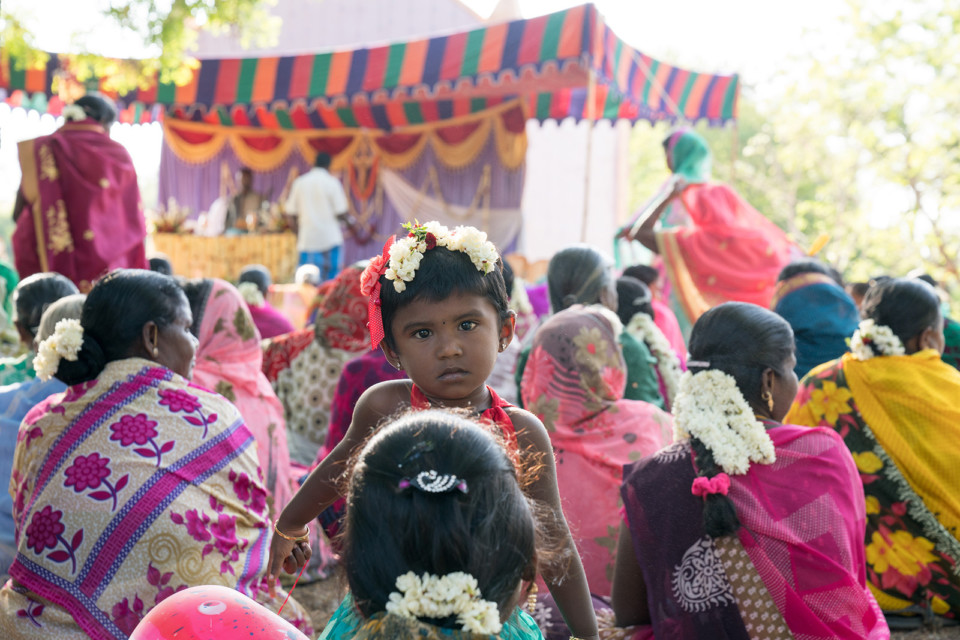
On this particular May morning, this small community proudly bears its big spirit and rich heritage through extravagant colour, music, dance, food and festivity. It is the feast of St Paul of Thebes, also known as Paul the Hermit, the patron saint of the mostly Catholic village. The story goes that the 19th century French missionaries who founded Michaelpuram set out on their journey on January 15—the traditional date of the feast of St Paul of Thebes. When they arrived and settled five months later, they continued the feast in all its glory, creating an annual tradition that has grown larger every year.
‘This feast day ranks ahead of Christmas, ahead of Easter for these people,’ explains Sister Clara. ‘This is when the families come together from all over. Sons, daughters, cousins, aunts, uncles… they all return home from wherever they are living for this celebration.’
Indeed, Sister Clara herself is joined on this occasion by two young people who are very special to her and on whose lives she has had an enormous impact. Shorti, 14, and Vandoosha, 15, are visiting from Chennai during their school break to spend some time with the woman they refer to simply as “Mum”. When Shorti and Vandoosha first met, they were little girls who, despite coming from different places and backgrounds, shared the trauma of an early childhood marked by abuse and neglect. Shorti was discovered begging for food and money at a railway station in Chennai at the age of three. At five years old, Vandoosha was saved from slavery and physical abuse by a concerned neighbour who reported her anguished cries to authorities.
In the early days of the Marialaya project, Sister Clara made it her priority to connect with the community around her. By conducting regular street walks, meetings and informal conversations with families and authorities, she built trust in the neighbourhood and established Marialaya as the touchpoint for vulnerable children and families, while also educating people about the dangers present in the area and working to prevent abuses of vulnerable children. Perhaps the Sisters’ most critical innovation was a hotline number for anonymously reporting child abuse or neglect.
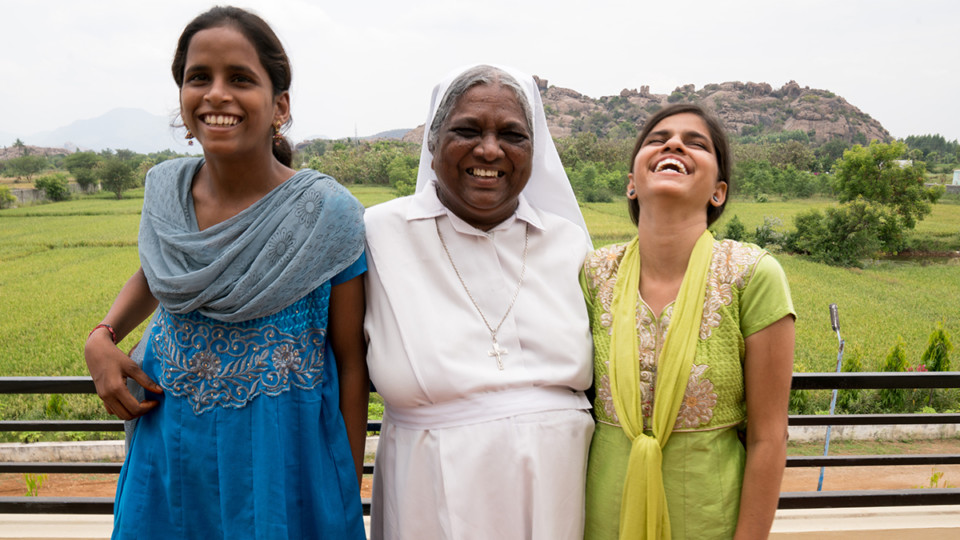
Both girls were among the first to come to the Marialaya Home for Girls in the centre of the bustling city of Chennai. Sister Clara was instrumental in the establishment of the Home, which has been a refuge for girls of all ages who are vulnerable to child trafficking, slavery and abuse, all of which are pressing issues in the city and in India more broadly. Today, when they are asked what Sister Clara means to them, both girls can express it in just a few words: ‘Mother. She is our mother.’
When they are not in boarding school, achieving high grades and exercising their creative talents, Shorti and Vandoosha live with the Salesian Sisters and around 25 other girls in the nondescript townhouse-style building in Chennai where they were brought to safety all those years ago.

Across town, three young sisters work together on a dance they are learning with friends in the courtyard of the new campus of the Marialaya Home for Girls. The large three-storey house was opened in 2015 and funded almost entirely by Catholic Mission’s supporters. It stands as a legacy, not only to the work of Sister Clara and the Salesian Sisters, but to their longstanding partnership with Catholic Mission and you, our supporters.
Hana, Sandi and Shreya (pictured, left to right, p. 9) came to Marialaya just a few months ago, after their teacher contacted the Sisters. Their home environment was unsustainable; the girls’ primary carers were their grandparents, who had unfortunately developed a dependence on alcohol. They are the beautiful faces of a new generation of girls who have a better shot at a full life because of Marialaya. Over the years, your continued support of this work has ensured many girls like Hana, Sandi and Shreya have escaped abusive, neglectful or perilous situations at their vulnerable stages of life. Thanks to your contribution to their lives, they have a chance to learn, make friends and grow to be intelligent, independent, loving children of God.
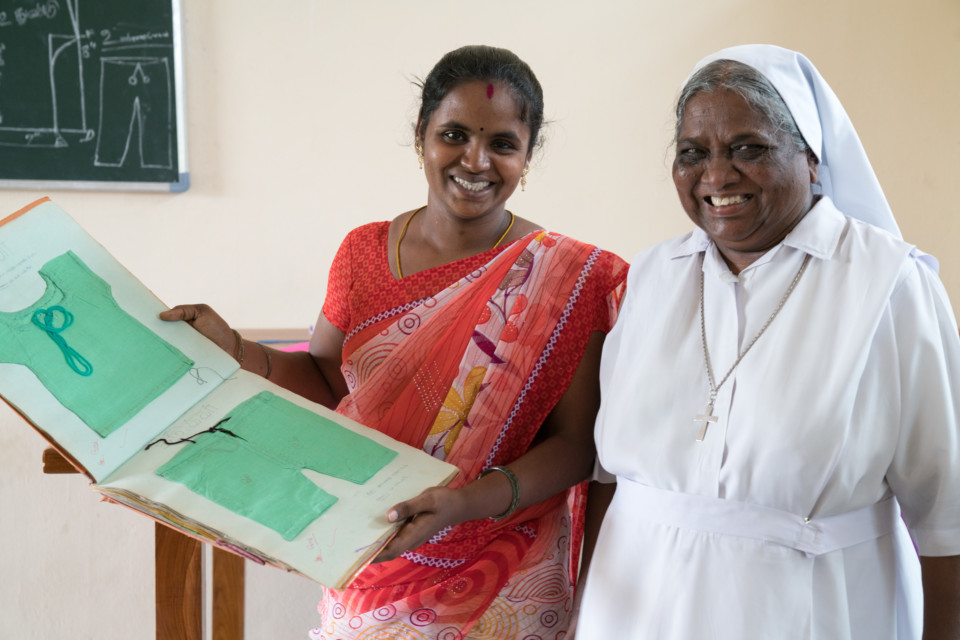
‘The legacy at Marialaya is that the most vulnerable girls of the society have a bright future,’ says Sister Madalatmuthu, the animator and director at Marialaya. ‘That is the one sentence we want to say here; that vulnerable children have a brighter future.’
‘This is what I insisted when I came to work in Chennai,’ Sister Clara affirms. ‘No more going back to the street. If you come to Marialaya you must have a better future.’
The heart-warming success stories are many. ‘One girl came here to Marialaya in the early days,’ recalls Sister Madalatmuthu. ‘She was 18 then. We cared for her here, and helped her stand on her feet, and now she has a daughter who is in college.’ Sister Clara’s legacy at Marialaya and in Chennai extends beyond merely children. The Sisters also perform outreach programs for women in the local community, ensuring those who are at risk of exploitation or abuse can have an opportunity to learn new skills, gain employment, network and find support in one another. Sister Madalatmuthu says their work builds on a strong foundation laid years earlier.
‘I came to know Sister Clara’s work, and I am seeing something wonderful here. Above all, she is a very good human being. We speak a lot about the girls, how they help each other and how Sister Clara helped them. She has got a very kind heart towards the poor.’
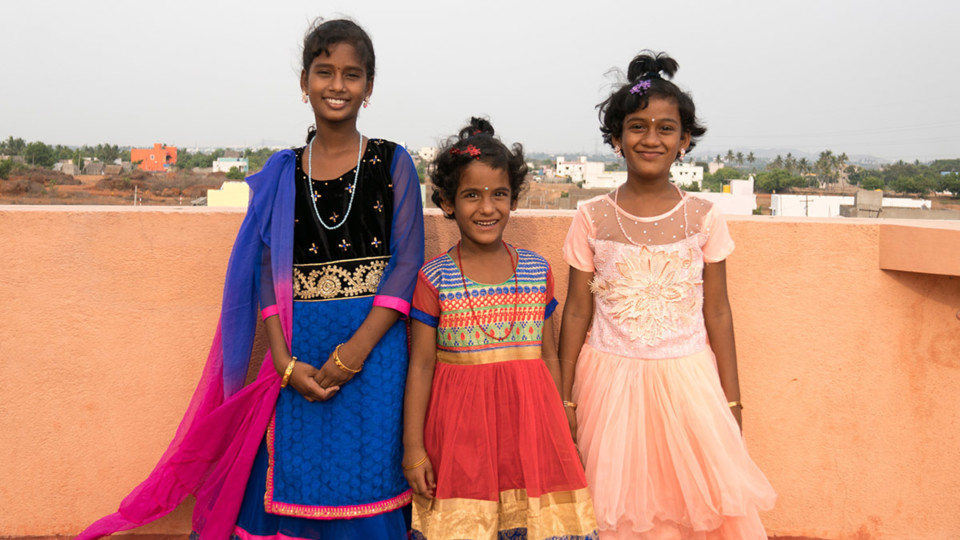
While it will always be dear to her heart, Sister Clara knew that eventually she would be called to leave Marialaya and take her wisdom and expertise elsewhere. Five years ago, she relocated to Michaelpuram, the small, vibrant community four hours south-west of Chennai. There she has encountered challenges different to those she found in the city. ‘Many men here drink here because they work long hours in the field and it is a release; but sadly, they become dependent on it,’ says Sister Clara. ‘The women drink because the men do, and often it is just an escape from reality.’ For many of these men and women, that reality is economic hardship, food insecurity, unsteady employment and severe environmental factors.
Sister Clara has found that women and children in the community are the ones who suffer the most from these conditions, so she has worked to build up local educational and vocational training programs, include tailoring, music, computing, and English, to empower local women and encourage sustainable growth in the small community.
One of the women, Rosie, first came to the handicraft classes before she was married. ‘After she was married, she came here every day right up until the day before she gave birth to her daughter,’ says Sister Clara with a laugh. ‘We told her she needed to rest and be at home, but she was so eager to be here and learning, we couldn’t keep her away!’
Such is the safe space that Sister Clara has created through her programs. ‘Rosie came here because she liked the work and felt secure and peaceful,’ she says. Rosie now brings her two-month-old daughter Lydia to the classroom and offers training for other young women new to the program. Their handicraft products are in high demand from schools in the surrounding area, meaning they are paid for the work they produce.
Through your support of Catholic Mission, you have partnered for over ten years with Sister Clara and the women and children she has served. Sister Clara says this partnership makes her work possible, not simply through providing crucial funding, but also in the strength she gains from having you by her side. ‘We are not worried about what will happen to us; you are there to support us,’ she says. ‘With that we go ahead doing what we do for these people. This is a mission you are helping us to fulfil.’
‘The women have confidence and security that for anything they need they can come to us,’ says Sister Clara. ‘We will stand by them; that is their security. Most of all, they know we care for and educate their children. This makes a big difference too.’ Anyone whose life has been touched by Sister Clara will tell you a very similar thing about her: she is missionary and a wonderful servant of God. ‘I have known Sister Clara for the past 30 years,’ says Father Arulanandham, a Salesian priest from the Madras Mylapore Archdiocese. ‘She has been doing a lot of social work in Chennai province and you could call her the Mother Teresa of wherever she goes. All that she does is not for herself, but for others.’